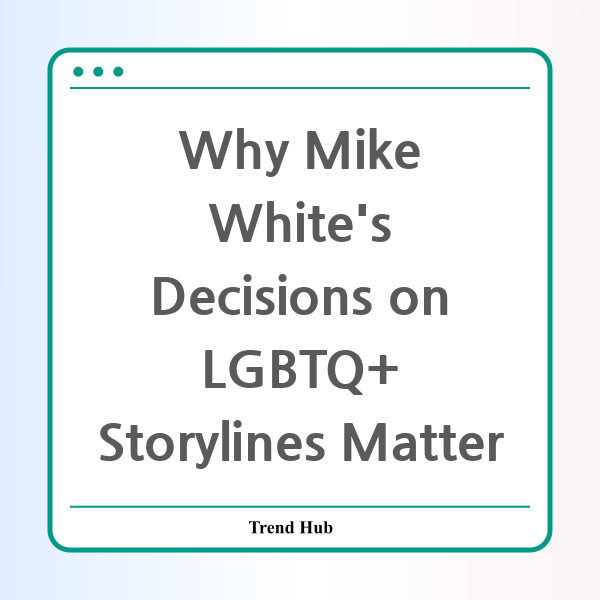* This website participates in the Amazon Affiliate Program and earns from qualifying purchases.

Have the political winds in the U.S. influenced the storytelling on one of television’s most provocative shows? Recent revelations about the HBO series The White Lotus have sparked discussions about how cultural and political climates shape media narratives, particularly when it comes to inclusivity and representation of LGBTQ+ characters.
In the latest discourse surrounding The White Lotus, actress Carrie Coon disclosed that creator Mike White decided to cut a storyline involving her character's non-binary child due to the political climate following Donald Trump’s election. Originally, Coon’s character, Laurie, was to have more depth that included her struggles with parenting a non-binary child. However, the sensitive nature of this topic, combined with the re-election of Trump—known for his contentious policies towards transgender individuals—led to significant changes in the script.
Coon, who plays a recently divorced lawyer navigating her life on vacation, mention that the deleted scenes showed Laurie grappling with the complexities of modern gender identities, including using they/them pronouns. She emphasized how this aspect of Laurie's life added meaningful tension to scenes where political affiliations came into play. In one instance, when another character reveals their support for Trump, the layered context of Laurie’s personal life would have made that revelation even more jarring.
This narrative cut raises a critical question: Does Hollywood censor important storylines for fear of backlash? It seems that the answer is complex, particularly considering the climate of fear within the industry surrounding Trump's presidency. Mike White’s decision was framed not as an avoidance of important discussions but rather as an acknowledgment of an inadequately developed storyline that could not adequately engage with the gravity of LGBTQ+ issues.
Although some might view this alteration as a retreat from addressing pivotal cultural conversations, it’s also essential to recognize the broader implications. After all, The White Lotus is well-known for its willingness to tackle taboo subjects and its sharp social commentary. However, when it comes to underrepresented communities, the fear of not doing justice to their narratives could lead to cautious storytelling.
Moreover, similar decisions have been noted in other entertainment avenues. Major studios like Disney have also faced scrutiny over their portrayal—or lack thereof—of LGBTQ+ characters. The debate around representation is not merely about inclusion but about how those stories are told, who tells them, and the complexities involved in their portrayal.
Currently, with the third season of The White Lotus airing and featuring contentious political dialogues among its characters, the narrative choices made by White exemplify the challenges the entertainment industry faces in balancing storytelling with social responsibility. As creators navigate the tumultuous waters of public opinion and political sensitivity, audiences are left to ponder: are we sacrificing depth and authenticity for the sake of safety?
As we await the season finale, one thing is clear: the impact of politics on creative expression remains a hot-button issue. The dialogue surrounding the portrayal of LGBTQ+ characters is more important than ever, challenging artists and audiences alike to advocate for narratives that celebrate diversity while addressing the realities of our world head-on.
Ultimately, the decisions made by creators like Mike White have far-reaching implications. They not only dictate the content we consume but also reflect society's shifting attitudes toward race, gender, and sexuality. Therefore, as viewers, it becomes our responsibility to engage with these narratives critically and support stories that push boundaries rather than retreat into silence.
* This website participates in the Amazon Affiliate Program and earns from qualifying purchases.